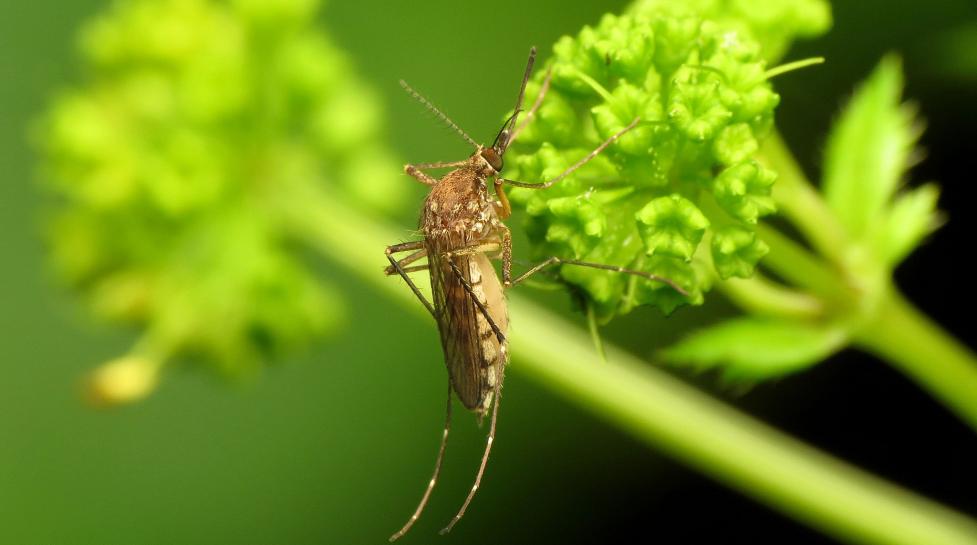Mosquitoes are a fact of life on the front range. Learn ways to protect yourself and your home.
Mosquitoes are a fact of life in the Front Range. The last few summers have seen record numbers of mosquitoes in and around Boulder. And the city is not alone. Mosquito populations have been increasing around the country, while other insect populations around the world are plummeting.
According to a recent study, the main drivers for the increase in mosquito populations are changing land use patterns and pesticide impacts to the environment. While mosquitoes can readily breed in poor-quality sites created by human disturbance, other organisms, including many of the predators that naturally control mosquitoes, require higher quality habitat. Additionally, mosquito control pesticides can alter already imperiled habitats, which can unintentionally contribute to conditions that favor mosquitoes, impact non-target species and are associated with human disease. Protecting biological diversity decreases the risk of mosquito-borne disease.
West Nile virus (WNv) is endemic in Colorado and when mosquito populations are high, the risk can increase if mosquitoes become infected. Currently, WNv has been detected throughout Northern Colorado, including the city and Boulder County. WNv is preventable with personal protection to avoid mosquito bites.
The most effective ways to decrease mosquito populations are to reduce artificial breeding habitat, eliminate standing water where mosquitoes lay eggs and to protect and conserve high quality wetlands that teem with mosquito predators.
Here is what you can do to let mosquitoes know they are NOT welcome, without impacting other species:
-
Reduce standing water to keep mosquitoes from breeding. Any item or depression in your yard that can hold a small quantity of water longer than a few days can breed mosquitoes.
-
Empty water from lawn ornaments, plant pots, toys, garbage cans and lids, recycle containers, bottles, wheelbarrows, birdbaths, pool and hot tub covers.
-
Keep gutters clear and flowing and avoid over-watering your lawn.
-
Keep mosquitoes from entering your home with tight-fitting screens.
-
If you have areas that collect water and can’t be drained that can breed mosquitoes, use mosquito dunks or bits to eliminate mosquito larvae.
-
In outdoor areas like patios or backyards, try using a fan or two for extra protection against mosquitoes. They cannot navigate the fast-moving air and it disrupts their ability to locate you.
Although the thought of summer without mosquitoes is tempting, AVOID using mosquito spray treatments in your yard. These broad-spectrum neurotoxic insecticides kill bees, beneficial insects like ladybugs and spiders and are associated with cognitive problems in children and health issues in adults. The chemicals run off into the creek system, killing or harming the aquatic organisms that are the foundation of fresh water ecosystems.
Support wetland conservation efforts by the city and private landowners and manage your lawn without chemicals. Besides many other benefits, high functioning wetlands naturally control mosquitoes because they are filled with mosquito predators that naturally keep mosquito numbers low.
If you do encounter mosquitoes, take actions to protect yourself from bites. Use insect repellent that contains oil of lemon-eucalyptus, picaridin, or DEET. Avoid the outdoors at dawn and dusk when mosquitoes are most active. If you are outside when mosquitoes are active, cover up by wearing long sleeves and pants.
Visit bouldercolorado.gov/services/ecological-mosquito-management to learn more about the city’s mosquito program, including reports on mosquito activity and West Nile virus risk.
Keep Reading
News keep reading
-
City of Boulder and Boulder County Release Draft Boulder Valley Comprehensive Plan
-
City of Boulder, Boulder County Public Health, the Latino Chamber and Boulder Chamber to Host Two-Day Mobile Food Vehicle Licensing Event on Feb. 25 and Feb. 26
-
Planning and Development Services 2025 in Review
-
City of Boulder and Boulder County Complete First Phase of Boulder Valley Comprehensive Plan Update, A Boulder Today
